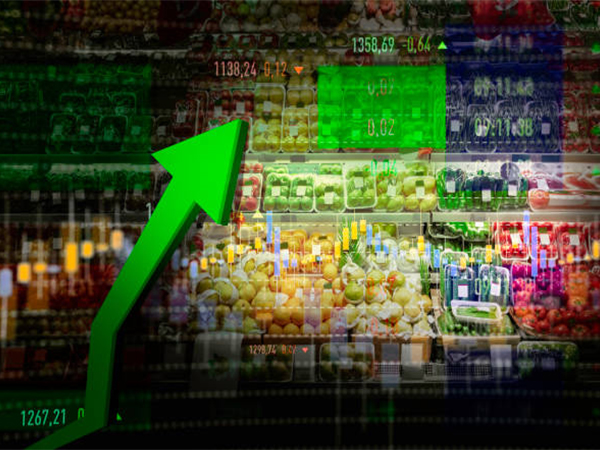India’s Consumer Price Index (CPI) inflation saw a significant decline to 3.54 per cent in July 2024, the lowest level in nearly five years and a sharp drop from 5.08 per cent in June. This decrease has been attributed to a favourable base effect and a substantial reduction in vegetable prices, with vegetable inflation dropping from 29.3 per cent in June to 6.8 per cent in July. The Consumer Food Price Index (CFPI) also experienced a noteworthy decline, falling from 9.36 per cent in June to 5.42 per cent in July. However, experts warn that despite these positive developments, challenges lie ahead that could impact inflation levels.
Experts highlight that while the moderation in CPI inflation is a positive sign, the road ahead could be challenging. The momentum in food prices remains strong, with a 2.5 per cent month-on-month increase in prices, higher than the average sequential growth. This indicates that inflationary pressures may persist in the coming months. The uneven distribution of monsoon rainfall and the potential for excess rainfall pose additional risks to food prices. Rajani Sinha, Chief Economist at CareEdge, emphasized that while there has been moderation in food inflation compared to the previous year, the sequential momentum remains robust.
Dharmakirti Joshi, Chief Economist at CRISIL, pointed out the impact of the high-base effect on inflation levels. The high-base effect, along with sequential monthly movements, has supported food inflation but has had an adverse effect on core inflation. Despite the positive progress, concerns remain about the elevation of food prices, with the month-on-month rise slightly higher than usual for July. However, Joshi expects inflation to ease and average around 4.5 per cent this fiscal year due to softer food prices, which could prompt the Reserve Bank of India to begin cutting rates as early as October.
Raghvendra Nath, Managing Director of Ladderup Wealth Management, expressed optimism about the CPI data, highlighting the significant improvement in the Consumer Food Price Index. The reduction in food prices should provide reassurance to the Reserve Bank of India (RBI), which has indicated that rate cuts will only occur when inflation aligns sustainably with its 4 per cent target. Nath also mentioned that positive expectations for the monsoon and adequate buffer stocks should support the continued downward trend of CPI. However, he cautioned that any substantial increase in crude oil prices due to geopolitical crises could negatively affect inflation and the broader economy.
Sanjeev Agrawal, President of the PHD Chamber of Commerce and Industry, praised the decline in CPI inflation in July 2024. He noted the significant easing of food and beverage inflation, along with fuel and light inflation, as the main drivers of the softening inflation trajectory. The decline in year-on-year inflation rate from 5.08 per cent in June to 3.5 per cent in July reflects positive progress, indicating that inflation levels are moving in the right direction. The decrease in fuel and light inflation from -3.7 per cent in June to -5.4 per cent in July further contributes to the overall softening of inflation.
In conclusion, while the decline in CPI inflation in July 2024 is a positive development, experts caution that challenges remain that could impact inflation levels in the future. The strong momentum in food prices, uneven monsoon rainfall distribution, and potential excess rain in the coming months pose risks to inflation. Despite the high-base effect and its impact on core inflation, experts expect inflation to ease due to softer food prices. The positive outlook for the monsoon and buffer stocks should support the downward trend of CPI, but external factors such as crude oil prices could affect inflation and the broader economy. The decline in food and beverage inflation, along with other key drivers, reflects progress towards aligning inflation sustainably with the RBI’s target, offering hope for further easing in the future.











